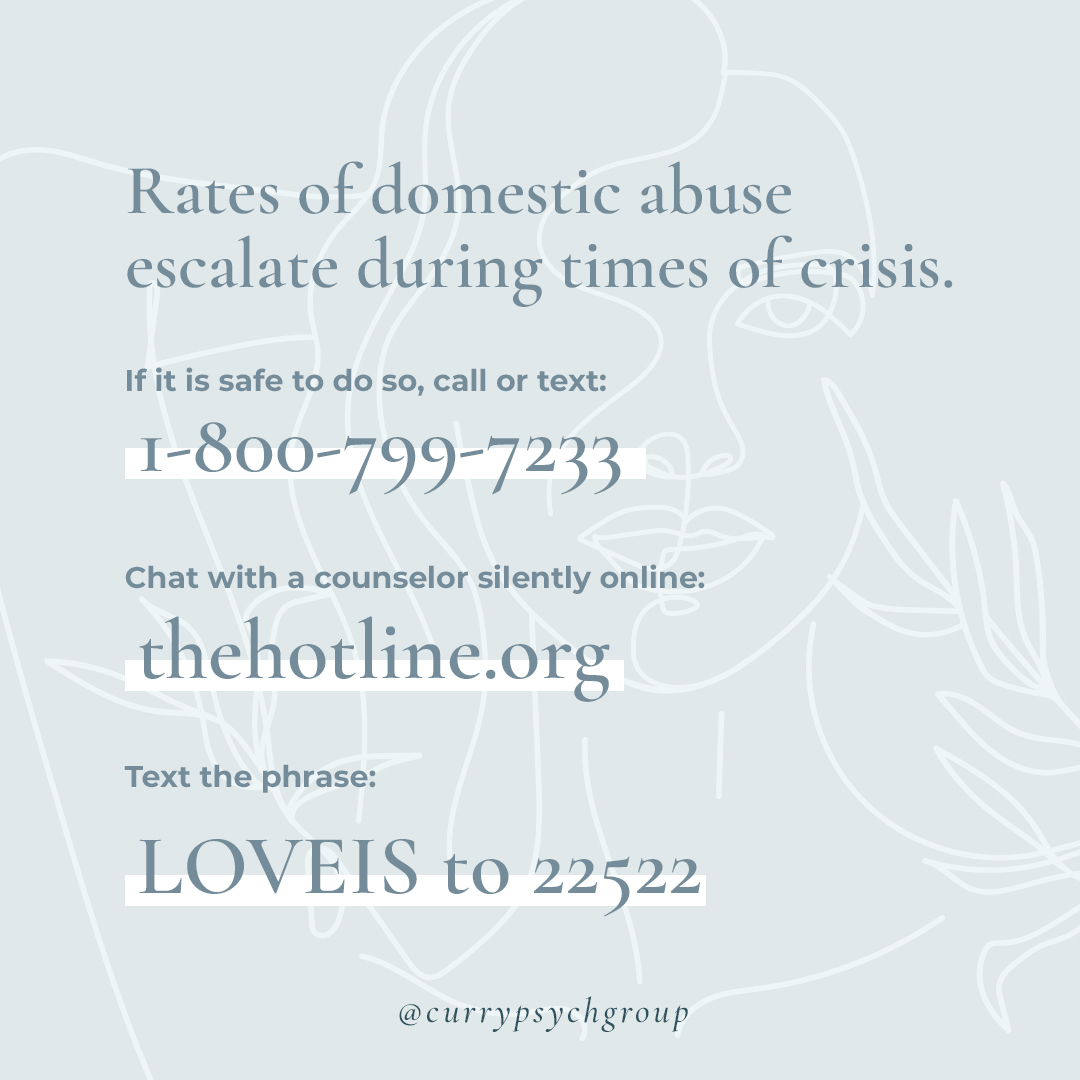April 02, 2020
Domestic Abuse Escalates In Crisis
During times of crisis, the rates of domestic violence dramatically escalate. This is due to several factors. First, large-scale traumatic events such as epidemics, natural disasters, war, and recession cause people to feel uncertain and powerless. These feelings are particularly uncomfortable for abusers, who are intolerant of the insecurity and powerlessness they already feel in their lives. In an attempt to mitigate their own discomfort, abusers use violence and control tactics to establish a sense of power over others- usually those closest to them. The social and economic impact of large-scale disasters only compounds the problem. For instance, as a result of the COVID-19 pandemic, children who could previously escape a violent household during school hours may now be with their abuser(s) 24-hours a day. Spouses who were separated from their abuser while at work may now be jobless or working remotely by their side. Financial losses have caused some domestic violence shelters to close their doors, reducing safe havens for those in need of protection and shelter. Job losses have increased survivors’ dependency on abusive spouses they might have otherwise been able to leave. The shut-down of air travel and public transportation further isolates survivors from family and friends who can provide shelter or support, and further limits options for escape. Before COVID-19, one in four women and one in nine men in the U.S. were experiencing *severe,* ongoing intimate partner violence causing significant fear and trauma. In China this past February, domestic violence reports tripled from previous years. Right now, someone you know is in fear and not sure what to do. Make sure you share this information. There is support and help still available.
Here’s how COVID-19 could uniquely impact domestic violence survivors (adapted from the National Domestic Violence Hotline):
- Abusive partners may withhold necessary items, such as hand sanitizer or disinfectants.
- Abusive partners may unnecessarily isolate their partner from their children, using COVID-19 as a scare tactic
- Abusive partners may accuse their partner of attempting to “infect them” and use violence if angered by a partner coughing or sneezing
- Abusive partners may share misinformation about the pandemic to control or frighten survivors, or to prevent them from seeking appropriate medical attention if they have symptoms.
- Abusive partners may withhold insurance cards, threaten to cancel insurance, or prevent survivors from seeking medical attention if they need it.
- Programs that serve survivors may be significantly impacted –- shelters may be full or may even stop intakes altogether. Survivors may also fear entering shelter because of being in close quarters with groups of people.
- Survivors who are older or have chronic heart or lung conditions may be at increased risk in public places where they would typically get support, like shelters, counseling centers, or courthouses.
- Travel restrictions may impact a survivor’s escape or safety plan – it may not be safe for them to use public transportation or to fly.
- An abusive partner may feel more justified and escalate their isolation tactics.
If any of the above sound like they may be happening to you or someone you love, here are a few suggestions:
1. Create a safety plan.
A safety plan is a personalized, practical plan that includes ways to remain safe while in a relationship, planning to leave, or after you leave. The National Domestic Violence Hotline will help set up a safety plan for anyone who is concerned about their own safety or the safety of someone else (victims, friends, family members, etc.). Having a safety plan laid out is especially important if you are in an abusive situation and both you and your partner have to stay home due to the coronavirus.
2. If it is safe to do so, maintain social connections online or over the phone.
Consider reaching out to a trusted friend, co-worker, or family member who could check in with you about your safety and support needs.
3. It may be difficult to reach out to others while an abusive partner is present. Remember that you can talk to a Domestic Abuse Hotline counselor by logging onto thehotline.org or by texting LOVEIS to 22522.
Additional Resources for Domestic Violence Survivors:
- The National Domestic Violence Hotline is 24/7, confidential and free:1-800-799-7233 and through chat.
- The National Sexual Assault Hotline is 24/7, confidential and free:800.656.HOPE (4673) and through chat.
- The StrongHearts Native Helpline for domestic/sexual violence is available 7am-10pm CT, confidential, and specifically for Native communities:1−844-762-8483
- The Trans LifeLine for peer support for trans folks 9am-3am CT:1-877-565-8860 This hotline is staffed exclusively by trans operators is the only crisis line with a policy against non-consensual active rescue.
- The Deaf Hotline is available 24/7 through video phone (1-855-812-1001), email and chat for Deaf, DeafBlind, DeafDisabled survivors.
- National Parent Helpline Monday -Friday 12pm-9am CT emotional support and advocacy for parents:1-855-2736
At Curry Psychology Group, our Newport Beach therapists are available for online and telephone support if you are able to call in privately and safely: 949-258-9777, or fill out the contact form on our website.






